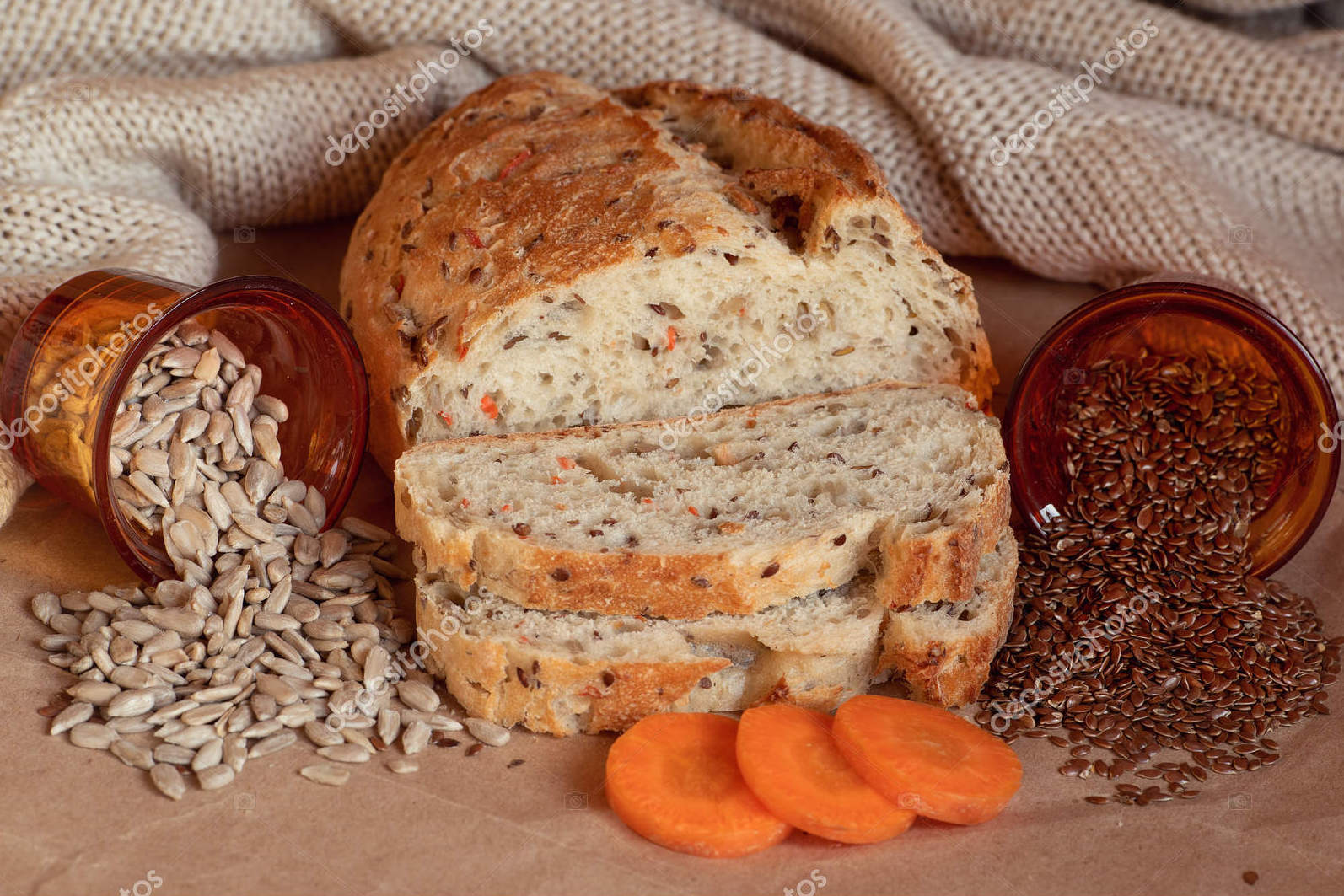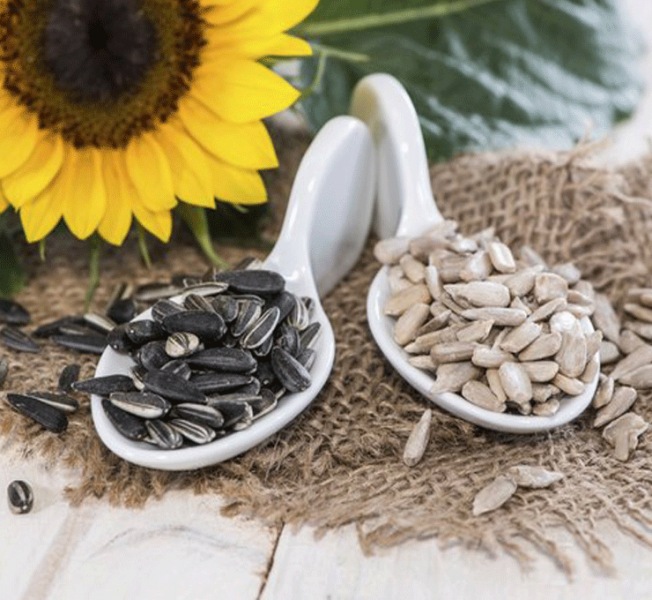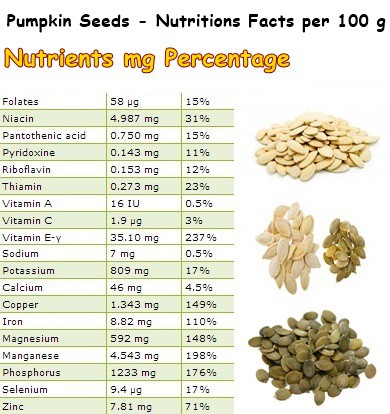Dietitians break down their nutritional benefits.
Sunflower seeds were a fun snack option back in the day, when you’d split a pack with your friends and have spitting contests with the shells.
While you probably don’t do that anymore (hey, no judgment if you do), sunflower seeds are still a super convenient snack to pick up at your local grocery store.
Of course, now that you’re a grownup, though, you’re probably wondering about the nutrition side of things and asking yourself, “Are sunflower seeds healthy, or not?”
What are sunflower seeds and what’s their nutrition like?
Let’s back up for a second. Sunflower seeds are the fruit of sunflowers, and they’re harvested, dried, and then prepared to become a tasty snack for you to munch on.
Sunflower seeds are an “excellent” source of vitamin E, magnesium, and selenium, “nutrients that are often lacking in our diets,” says Sonya Angelone, R.D., a spokeswoman for the Academy of Nutrition and Dietetics.
Here’s the nutrition info for one cup of sunflower seeds with the shells, per the USDA Nutrient Database:
- 269 calories
- 9.5 g protein
- 24 g fat
- 9 g carbohydrates
- 4 g fiber
- 1 g sugar
And for one cup of shelled (or hulled) sunflower seeds:
- 818 calories
- 29 g protein
- 72 g fat
- 28 carbs
- 12 fiber
- 3.7 sugar
How do sunflower seeds compare to other seeds?
Like other popular seeds, sunflower seeds—though high in calories—provide lots of plant-based protein, healthy fats, and fiber. Eat them without the shell and they seeds provide more protein than flax seeds and more fiber than hemp seeds.
Sunflower seeds also provide about as much iron as hemp seeds, flax seeds, and chia seeds (though they are not as high in calcium).
As far as calories are concerned, a cup of hulled sunflower seeds (818 calories) costs you more than a cup of flax seeds (600 calories), but less than a cup of hemp or chia seeds (885 and 960 calories), which contain more protein.
So, are sunflower seeds healthy?
Turns out that, yep, sunflower seeds are healthy. “They are nutritious, convenient, and delicious, and can be used in a variety of ways,” says Angelone. Here are four other reasons why these seeds can be good for you.
1. They can help fill you up.
Sunflower seeds have plenty of fat, fiber, and protein. “Eating foods and meals that contain protein, fat, and fiber, like sunflower seeds, can help you feel fuller and more satisfied for longer,” says Alissa Rumsey R.D., founder of Alissa Rumsey Nutrition and Wellness.
2. They’re good for your heart.
Sunflower seeds contain monounsaturated and polyunsaturated fats that “show a clear health benefit, especially related to heart health and risk of cardiovascular disease,” says Rumsey.
3. They can help lower your cholesterol.
Sunflower seeds have plant-based compounds called phytosterols which help lower cholesterol, Angelone says. Phytosterols are structurally similar to the type of cholesterol that’s bad for you body, so when you eat them, they actually compete with that cholesterol for absorption in your digestive tract.
4. They’re a good source of antioxidants.
Sunflower seeds are a “great” source of vitamin E, which has antioxidant properties, says Jessica Cording, R.D., a New York-based dietitian.
“Vitamin E travels through the body and neutralizes harmful chemicals in the body that can do damage to cells,” Angelone explains. “Vitamin E also helps reduce the risk of hardening of the arteries.”
The selenium found in sunflower seeds also acts as an antioxidant and can help repair damaged cells. “It is also a component of antioxidant enzymes that can help prevent cancer cells from dividing,” Angelone says.
[Build a killer midsection in the kitchen for effortless miles on the road with Eat for Abs!]

Fresh bread to maintain shape and good digestion with the addition of dry carrots, sunflower seeds and flax seed
Do sunflower seeds make you gain weight?
While there’s really no limit to how many sunflower seeds you should eat in a day, you do want to keep portion sizes in mind, given that they contain a fair amount of fat and calories, she says. Like any food, sunflower seeds will only make you gain weight if you don’t watch your intake.
Worth pointing out: The main difference between in-shell seeds or hulled seeds is nutrient (and calorie) density. Eating hulled sunflower seeds means you get more calories, fat, fiber, and protein per cup (mostly because shells take up more space than hulled seeds).
You should also look for seeds that either contain no salt or are low in sodium. Otherwise, you could be eating a sodium bomb, Cording says.
Also, if you like to eat your sunflower seeds with the shells intact, just keep in mind that they can be tough on your stomach if you actually swallow any shell (instead of spitting it all out).
“The outer shell has really rough fibers and can be really hard to digest,” Cording says. She recommends either removing the shells completely or opting for already hulled versions.
What are the healthiest ways to eat sunflower seeds?
There are a bunch of ways you can enjoy these little seeds, says Rumsey:
- On their own, out of the bag
- Mixed into trail mix
- Sprinkled on top of a green salad for extra crunch
You can also sprinkle them on top of yogurt, cereal, or soup—or even use them as a topping on a nut butter and banana snack, Angelone says.
The bottom line is that sunflower seeds are a healthy snack—just watch the sodium and portion sizes. But really, the possibilities are pretty endless.
A true love for sports



Recent Comments